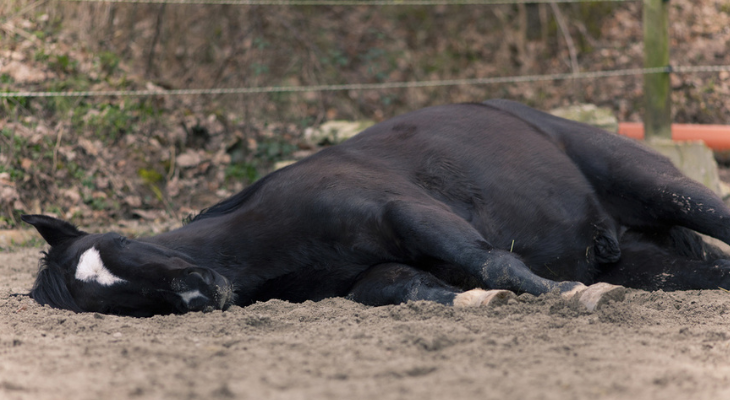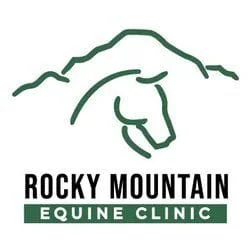
Important Things to Know about Equine Pneumonia
Even the healthiest horse can develop permanent breathing problems due to a bout of pneumonia. Recognizing the potential signs of the illness will help you ensure that your horse receives the care it needs should it ever develop the illness. Here are a few things you should now about equine pneumonia.
Equine Pneumonia Affects Horses of All Ages
Any horse can get equine pneumonia, although it's more common in foals, due to their immature immune systems. Elderly horses and those with weak immune systems are also more likely to develop the lung infection. Other equine pneumonia risk factors include:
- Inhaling Dust, Debris, or Soil Contaminated by Bacteria or Fungus
- Accidentally Inhaling Food or Liquid
- Aspirating Respiratory (Breathing) Tract Fluids from the Throat, Nose, or Mouth to the Windpipe and Lungs
- Blood Infections
- Viruses
- Inflammatory Airway Disease
- Racing and Other Vigorous Activities
- Exercise-Induced Pulmonary Hemorrhage (Ruptured blood vessels in the lungs caused by exercise)
Equine pneumonia is often referred to as "shipping fever" because horses that travel from one location to another are particularly prone to developing the illness. In fact, trailering offers the perfect set of circumstances for an infection to occur. Riding in a trailer is stressful for horses, even those that travel often, and can affect the immune system's ability to fight germs effectively.
The position of the horse's head during the trip increases the pneumonia risk. It's difficult for the respiratory system to drain properly if the head is tied during transport, according to DVM 360. Breathing dust from a hay net placed by the horse's head may also increase the risk of developing pneumonia.
These Signs Could Mean Your Horse Has Pneumonia
Whether pneumonia is caused by a bacterial, fungal, or viral infection, symptoms may include:
- Coughing
- Shallow Breathing
- Rattling Sound When Breathing
- Fever
- Lack of Appetite
- Fatigue
- Nasal Discharge
Rest Is an Important Part of Your Horse's Recovery
Your horse might be back to its normal routine in a few days or a week after any other illness, but that's not the case with pneumonia. If the lungs don't have plenty of time to heal, your horse could develop another infection. In fact, it might be a month until it's safe to resume normal activities.
Antibiotics are often used to treat pneumonia. Your horse may take the medication by mouth or inhale it with a nebulizer. Nebulizers convert liquid antibiotics into a fine mist that's easily inhaled through a special mask. Inhaled antibiotics reach the lungs faster than oral medication and provide a higher concentration of the medication.
You Can Take a Few Steps to Reduce Your Horse's Equine Pneumonia Risk
Although it's not always possible to prevent pneumonia, these tips could help reduce your horse's risk of developing this serious respiratory illness:
- Keep Up to Date on Vaccinations. Make sure your horse is fully vaccinated against common illnesses that could lead to pneumonia, such as the West Nile virus. Depending on your horse's risk factors, your equine veterinarian may also recommend equine influenza, strangles or other vaccines.
- Take Extra Care with Foals. Foals are more likely to develop pneumonia if they come in contact with the Rhodococcus equi (R. equi) bacterium. This bacterium is found in the soil and enters a foal's lungs when it breathes in. The UC Davis School of Veterinary Medicine recommends avoiding dirt paddocks, keeping stables well-ventilated, and quickly separating sick foals to reduce the spread of the illness. Since the R. equi bacterium is found in feces, it's important to get rid of manure promptly if a foal becomes sick.
- Give Trailered Horses a Break. If you'll be taking your horse on a long trip, frequent breaks out of the trailer might help prevent pneumonia, according to The Horse. Dr. Harold McKenzie, professor of large animal medicine at Virginia-Maryland Regional College of Veterinary Medicine, told The Horse that loosening head ties every four to six hours could be helpful if it's not possible to unload your horse.
- Limit Dust and Mold. Use low-dust bedding, make sure hay is free of mold, and keep your barn or stable well-ventilated.
Do you have a question about your horse's health or need to schedule a visit with the veterinarian? Give our office a call to arrange a visit.
Sources:
Dvm360: Managing Pneumonia and Pleuropneumonia in Horses (Proceedings), 10/1/2011
UC Davis School of Veterinary Medicine: Rhodococcus Equi, 8/28/2020
The Horse: Adult Horses Get Pneumonia, Too, 9/6/2022
University of Minnesota Extension: Pneumonia in the Adult Horse
